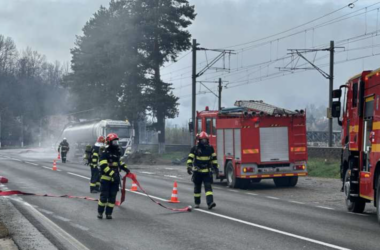Austria’s Social Democratic Party (SPÖ) has lost its absolute majority in Burgenland’s state elections, shaking up the political landscape. While the SPÖ remains the largest party, the right-wing Freedom Party of Austria (FPÖ) achieved a historic surge, securing second place and positioning itself as a key player for a potential coalition government.
Preliminary results show the SPÖ garnered 46.4% of the vote—a drop of 3.6 points from the last election—giving them 17 seats in the 36-member legislature, just two short of an outright majority. Meanwhile, the FPÖ made waves with 23.1% of the vote, a stunning 13.3-point jump from 2020, earning nine seats. FPÖ’s state leader Norbert Hofer celebrated the party’s best-ever showing in Burgenland.
This election proved a tough night for other parties. The Austrian People’s Party (ÖVP) tumbled 8.6 points, ending with 22% and a diminished presence in the legislature. The Greens held steady, securing two seats with 5.7%, while the liberal NEOS failed to cross the 4% threshold needed for representation.
Although the SPÖ has dominated Burgenland politics since 1964, Sunday’s result marks its second-lowest vote share in over two decades, surpassed only by the 41.9% recorded in 2015. To ensure stability, a coalition is now necessary, and SPÖ Governor Hans Peter Doskozil hinted at two possible partners: the Greens or the FPÖ.
“Either red-green, because the two are very close at the federal level, and that could also work out in Burgenland,” Doskozil said in a Sunday interview with the Austrian Broadcasting Corporation (ORF). “Or red-blue, because together we would have a constitutional majority in the state parliament and because we share the same interests on the asylum issue.”
Doskozil expressed relief at the results, joking, “A stone has fallen from my heart,” as pre-election speculation suggested the SPÖ might face an even tougher challenge.
The FPÖ hailed its performance as a major victory, emphasizing its growing popularity. National leader Herbert Kickl described the election as proof that Austrians are increasingly drawn to the party’s values.
“People want an honest policy that once again puts their well-being, their interests, and a good future at the center of everything,” Kickl said. “The people of Burgenland sent this signal today by placing their trust in the FPÖ, strengthening honesty, credibility, and straightforwardness.”
Hofer called the outcome “very, very pleasing,” though he acknowledged disappointment that a coalition might still exclude the FPÖ.
The ÖVP endured what its top candidate Christian Sagartz referred to as “painful losses,” reflecting its declining influence in the region. The Greens, meanwhile, signaled their openness to join a coalition. “We are ready to take responsibility,” said state spokeswoman Anja Haider-Wallner.
At the national level, the FPÖ recently won Austria’s federal elections in September. However, President Alexander van der Bellen initially passed over the party for the chancellorship due to other parties’ reluctance to form a coalition with them. Talks of an alternative “loser coalition” fell apart, paving the way for Kickl to lead further negotiations with the ÖVP.
With the FPÖ’s momentum on the rise and Burgenland’s election results reshaping local politics, Austria’s political future remains a dynamic and evolving scene.




